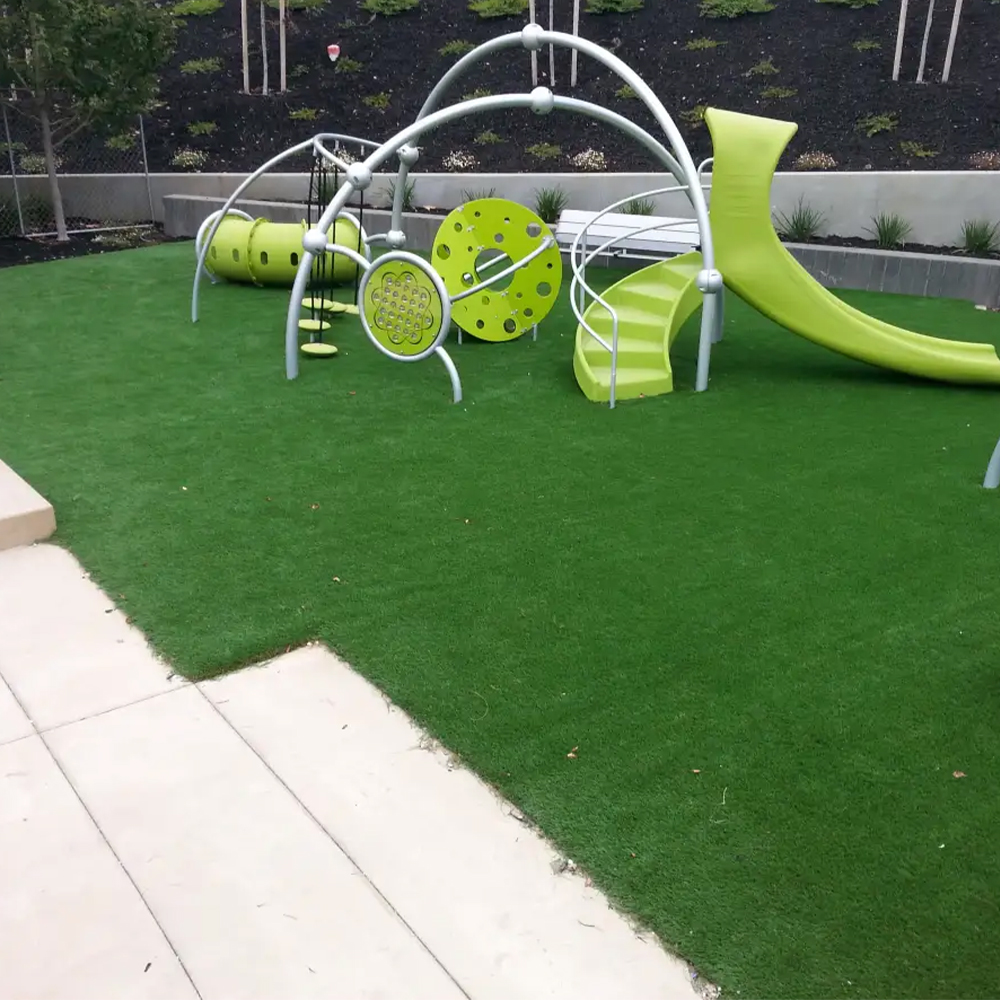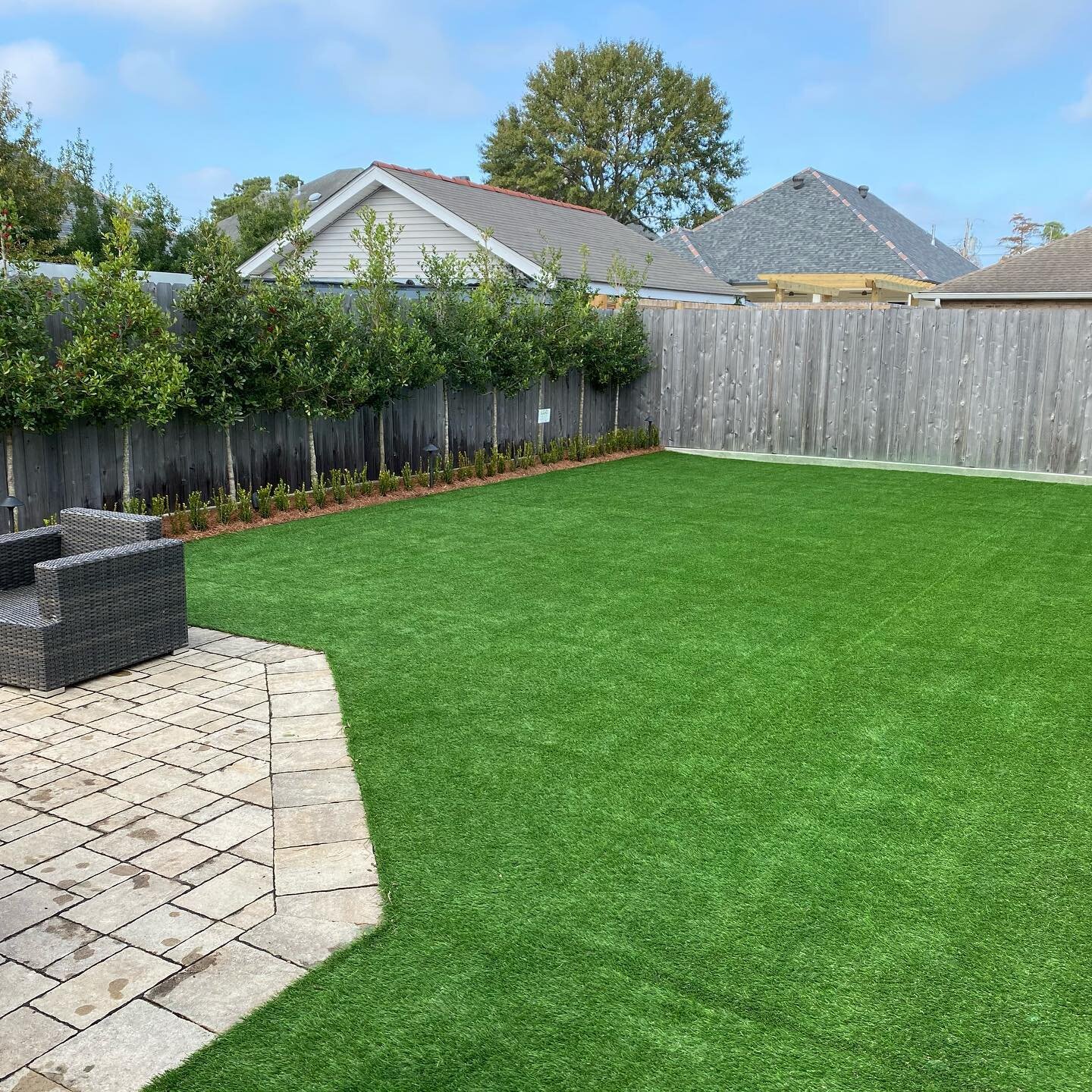Explore the Environmental Advantages of Opting for Artificial Lawn Solutions
The adoption of fabricated lawn solutions provides an engaging opportunity to deal with pushing ecological challenges. By significantly minimizing water usage and lessening the application of dangerous chemicals, these alternatives not just advertise lasting landscape design however also shield local ecosystems.
Water Preservation Benefits
One of the most substantial benefits of fabricated lawn is its capability to preserve water. In contrast, synthetic lawn does not require watering, significantly reducing the overall need for water sources.
By getting rid of the need for routine watering, fabricated turf adds to lasting landscape practices and helps minimize the ecological influence of extreme water intake. The conservation of water prolongs to the reduction of overflow, which can lead to soil disintegration and river contamination.
Furthermore, the installation of artificial grass enables municipalities and homeowners to allot water sources much more successfully, concentrating on vital uses such as alcohol consumption water and farming. The change in the direction of synthetic grass not only promotes responsible water usage yet likewise lines up with broader ecological goals targeted at protecting all-natural sources.
As areas progressively focus on sustainability, the water preservation advantages of man-made turf provide an engaging instance for its fostering in business and residential landscape design tasks.
Lowered Chemical Usage
The transition to man-made turf dramatically lowers the reliance on chemical treatments generally used in natural turf upkeep. Typical turf management commonly entails the application of fertilizers, chemicals, and herbicides to promote growth and control bugs. These chemicals can position risks to human health and wellness, regional wildlife, and the environment, contributing to soil and water contamination.
On the other hand, synthetic grass removes the need for these damaging substances. When mounted, it calls for very little upkeep, mainly containing regular cleansing and seldom infill replenishment. This reduction in chemical usage not just profits the prompt atmosphere but additionally adds to more comprehensive eco-friendly security. By minimizing the launch of artificial substances right into the community, synthetic grass advertises healthier soil and water systems.
Furthermore, the absence of chemical runoff linked with synthetic grass installments helps protect regional rivers from pollution, sustaining marine life and maintaining biodiversity. Phoenix turf companies. As communities significantly focus on sustainable methods, deciding for synthetic grass presents a sensible solution that lines up with environmental conservation objectives. Via this shift, residential or commercial property owners can appreciate lush eco-friendly areas without jeopardizing ecological health, leading the way for a much more sustainable future
Reduced Carbon Footprint

In addition, the installment of man-made lawn can cause substantial water preservation. All-natural lawns need substantial amounts of water for watering, which not only includes in the carbon footprint linked with water removal and treatment but likewise pressures local water sources. In comparison, synthetic grass requires very little upkeep, needing no watering, thereby substantially lowering water usage and its connected power expenses.
Additionally, the longevity of synthetic grass contributes to its reduced carbon effect. With a life expectancy of as much as 15 years or even more, the requirement for frequent substitutes is lessened, resulting in much less waste and lower energy usage in manufacturing and getting rid of standard grass options. Overall, synthetic grass offers a sustainable option for ecologically aware landscape design.
Habitat Conservation
Environment click reference preservation is an important factor to consider in the discussion over landscaping selections, specifically when contrasting artificial lawn to natural yard. All-natural lawn lawns frequently need substantial upkeep, consisting of making use of chemicals, herbicides, and plant foods, which can negatively influence regional ecosystems. These chemicals can seep into the dirt and waterways, harming native flora and animals and interrupting neighborhood environments.
Synthetic grass gets rid of the requirement for hazardous chemicals, therefore securing close-by wildlife and preserving the integrity of bordering ecosystems. The installment of artificial grass can lead to the conversion of former grass areas into more biodiverse landscapes, such as pollinator yards or indigenous plant locations, which can sustain regional wild animals.
Inevitably, the shift to synthetic grass not just preserves water and reduces maintenance efforts however additionally cultivates a much more unified connection in between human activities and the native environment, promoting environment preservation in the process.
Long-Term Sustainability
Long-term sustainability is a critical variable in reviewing the benefits of man-made grass over typical grass yards. Among one of the most considerable benefits of fabricated turf is its sturdiness; it can last as much as 15-20 years with minimal upkeep, whereas all-natural grass calls for regular reseeding and replacement. This durability lowers the demand for consistent sources, such as water, fertilizers, and pesticides, which are vital for preserving a healthy and balanced grass yard.
Furthermore, man-made grass adds to a reduction in carbon discharges related to get more lawn treatment tools. Standard lawns typically need gas-powered lawn mowers, trimmers, and blowers, all of which add to air contamination. Arizona artificial turf. On the other hand, synthetic grass eliminates the need for such devices, advertising a cleaner environment
Additionally, the production of fabricated lawn progressively utilizes recycled products, enhancing its sustainability profile. As makers adopt environment-friendly techniques, the environmental footprint of artificial grass remains to diminish.

Verdict
The fostering of synthetic lawn services offers significant ecological advantages, consisting of considerable water preservation, reduced reliance on damaging get more chemicals, and a reduced carbon footprint. In addition, artificial turf aids in maintaining natural environments by reducing land disruption and promoting lasting sustainability via making use of resilient materials. Jointly, these factors underscore the capacity of synthetic grass to add favorably to environmental health and supply a viable option to standard landscape design practices in a progressively resource-conscious globe.
In contrast, fabricated grass does not need watering, substantially lowering the general demand for water sources. By reducing the release of synthetic substances into the ecosystem, fabricated lawn advertises much healthier soil and water systems.
In addition, the installation of artificial lawn can result in significant water conservation. In comparison, artificial lawn needs marginal maintenance, needing no watering, thus dramatically minimizing water usage and its associated power costs.
